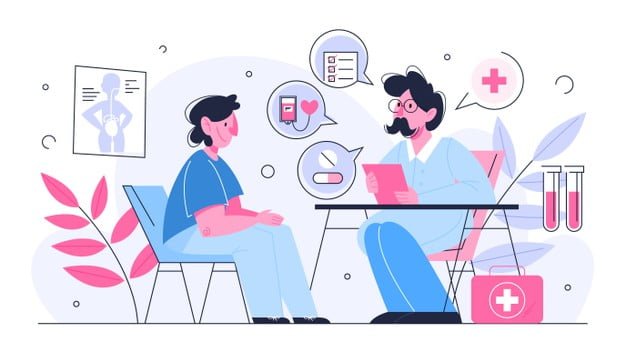Nutritionists/ Dietician
Dietician near me
Be Healthy and Stay Fit, need a proper diet plan- Consult with our top Rated DIETICIAN
Nutritionists/dieticians are health specialists who create diets for individuals. They teach patients about healthy food habits/lifestyles and staying aware of developments in nutrition and medicine. Dietetics emphasizes on food management, whereas nutrition emphases on the promotion of health by way of healthy food.
To assist you in the process of attaining equilibrium between your life & health Gazal Mehta, a nutritionist by profession with proven credentials in the field, renders consultation and guidance to put all such maladies in the rear view mirror.
A concept of mindful eating. She finds her place as the best nutritionist for weight loss and strives to create a comprehensive solution for people incorporating all the aspects of life ranging from health, wellness, diabetes management, cholesterol control, thyroid, PCOS reversal, and much more. Her customized plans are based on balanced diet without any FAD or CRASH diets.

physiotherapy at home
Care at Your Home comfort- According to your suitable time
- Certified and Trained Physiotherapist
- Full 60 Minutes Session
- All Necessary Equipment Available
- 24/7 Support and Feedback
physiotherapy clinic
Advance Physiotherapy technique- Certified and Trained Physiotherapist
- Separate Appointment schedule for every patient
- All Necessary Equipment Available
- Hygienic and Comfortable Environment
- 24/7 Support and Feedback
FAQ'S
In any given class, the subject may be “keto” or “the Mediterranean diet” or “vegetarian,” and the answer is always the same: There’s not one best way to eat. We are all different, and it would be impossible to choose one plan that would be right for everyone.
The best plan for you is the one that meets your medical and nutritional needs by dieticians while also being affordable, accessible, enjoyable and something you can stick with for the long term. Sometimes that may not be clear, but seeing a dietician can help you figure it out.
No single nutrient or ingredient is the cause of poor diets. We live in an environment where highly palatable and cheap food is available everywhere. Pizza, chips, pastries and soda are dietary staples, and the average American gets almost 60% of their daily calories from such ultra-processed foods.
What’s most problematic is eating too much of those ultra-processed foods and not enough whole foods (such as vegetables, fish and nuts) over a long period of time.
Consult with your dieticians for proper Plan.
Drinking water is vital because we lose fluid every day through sweating, urinating and breathing. But how can it be possible that each one of us — regardless of age, gender, size, activity level and diet — requires eight glasses per day? The answer: It’s not. That number comes from a 1945 U.S. Food and Nutrition Board recommendation, which was not based on research. And it didn’t recommend drinking only water for hydration; it noted that fluid can come from other beverages and food, too. So, there’s no scientific basis for the “eight glasses” number.
In most cases, thirst is your best indicator that you need a drink. If that sense is compromised, keep beverages visible so you remember to sip throughout the day. Exactly how much to drink is not a static number for everyone.
Organic refers to a method of farming, but it’s not a health claim. An organic logo tells you nothing about the calories, fat, salt, sugar or vitamin content of food.
A cake made with organic white flour, organic sugar and organic butter is still cake — it’s not suddenly “healthy cake” because the ingredients were grown using organic farming methods. Nutritious foods — whether conventionally or organically grown — are those that provide the body with fiber, vitamins, minerals, protein and other key nutrients.
The No. 1 source of added sugar for Americans, providing 47% of the sugar in their diet, is sweetened beverages — items such as soda, lemonade, fruit punch and energy drinks. Fruit provides 1% of the added sugars Americans consume. (Note: Health advice to limit “added sugar” does not apply to the natural sugar in fruit.)
Even if Americans met their daily fruit intake — and 88% do not — it wouldn’t come close to the volume of sugar we get from ultra-processed foods and beverages. If you need to cut back on sugar, swap sweetened beverages for water. Keep enjoying fruit, and aim for one or two cups per day.
A dieticians will make a proper plan for intake.
